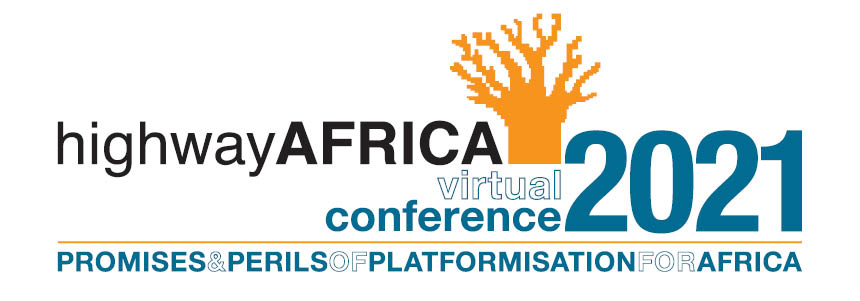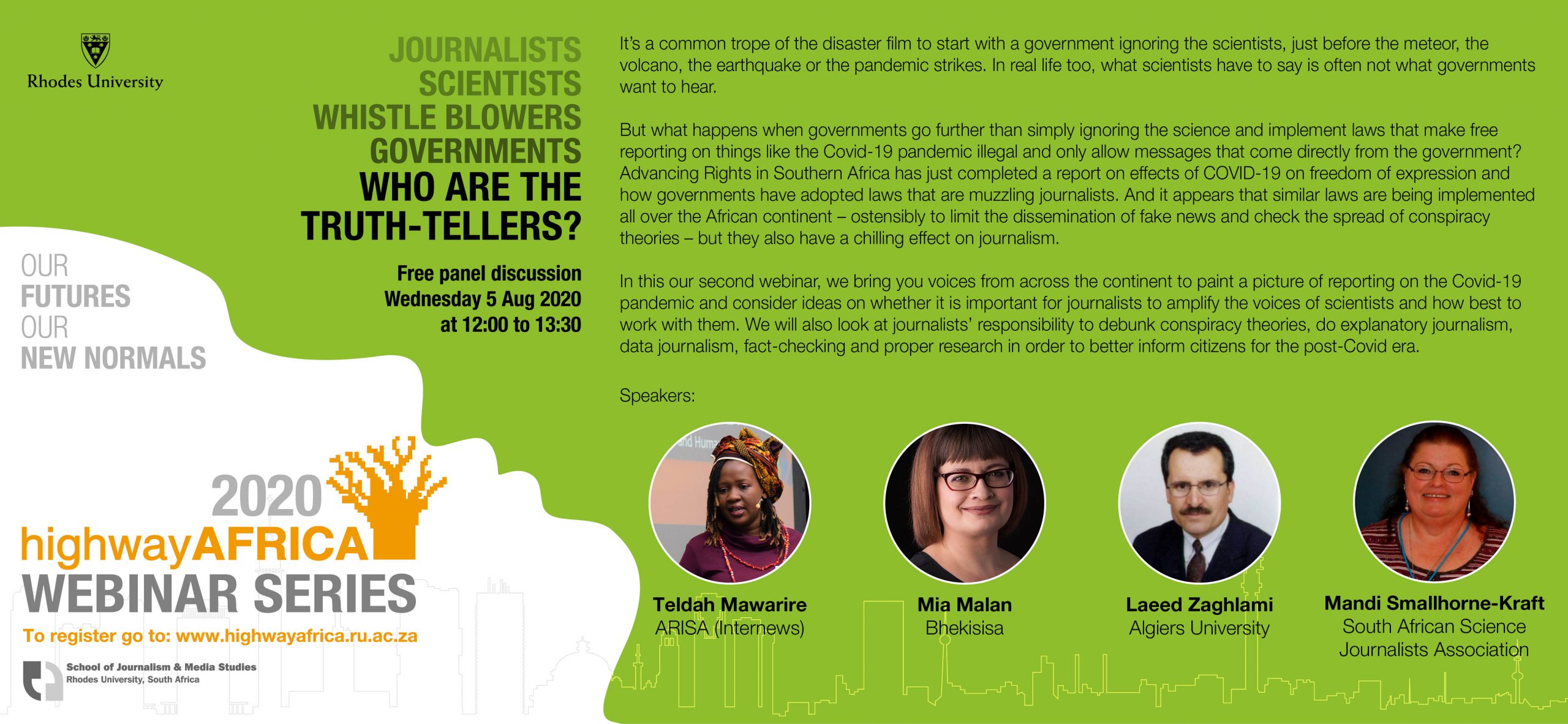Makhanda (Grahamstown), South Africa — Highway Africa (HA), the largest conference for African journalists on the continent, hosted its second webinar entitled “Journalists, Scientists, Whistle-blowers, Governments: Who are The Truth-Tellers” on August 5.
This session was part of a series of Highway Africa webinars, hosted by the School of Journalism and Media Studies at Rhodes University, that seeks practical solutions to challenges faced by African media and journalism in the era of Covid-19.
In this second webinar, four media experts from across the African continent discussed how to navigate the rocky terrain of deciding who to trust amongst journalists, scientists, governments and whistle-blowers in the time of the Covid-19 pandemic.
Teldah Mawarire, a project director at Internews shared worrying findings from a recent Internews research project that examines freedom of expression for journalists across Southern Africa in the Covid-19 era. She noted that “some of the laws which are meant to respond to Covid-19 are infringing and curtailing on freedom of expression”. The research shows that laws prohibiting disinformation and carrying large financial penalties are leading to self-censorship among journalists across the region. It also reveals that some countries in the region have pronounced government sources to be the only legitimate sources for Covid-19 reporting. This has crippled investigative journalism and has made it nearly impossible to report independently on infection numbers and Covid-19’s impact on communities and hospitals in Southern Africa.
Mawarire also highlighted the acute lack of personal protective equipment (PPE) for Southern African journalists and the severe financial pressures affecting print media sustainability in the region. The Internews report focused on seven Southern African countries which include: Zimbabwe, Zambia, Eswatini, Lesotho, South Africa, Botswana and Malawi. It will be released on the Internews website (https://internews.org/) in the next few weeks.
Mawarire shared the platform with Mia Malan, the founding editor-in-chief of Bhekisisa Centre for Health Journalism, a pioneering, donor-funded health media start-up in South Africa; as well as Dr Laeed Zaghlami, a professor in the faculty of Information and Communication at Algiers University in Algeria.
Malan reflected on the difference in reporting between two different pandemics, that of HIV/Aids, and the current Covid-19 pandemic. She noted that in the case of HIV/Aids there were better opportunities to report on studies as the epidemic was slower-paced than Covid-19.
Malan explained that the pandemic has revealed the importance for all journalists, not just science journalists, to understand the process of scientific research and publication. Such knowledge can help journalists realise how to make sense of untested information that is regularly circulated online in the form of prepublication drafts. These drafts facilitate the rapid circulation of scientific ideas when urgent solutions are needed to save lives, but also need to be treated with some scepticism. An overview of prepublication drafts reveal numerous discrepancies in Covid-19 studies and such research often has to be retracted later or adjusted after peer review. Journalists need to understand the difference between pre-publication drafts and peer-reviewed articles and should only rely on peer-reviewed publications in their reporting.
“There are a few rules to be followed. If it sounds too good to be true, then it probably is. When you get fast-tracked research, you need to raise your eyebrows. When you see a scientist speaking outside of their field of expertise, then question their credibility and ask questions”, Malan warned.
Zaghlami echoed Malan’s sentiments on the importance of checking the credibility of both information and sources. He noted that in Algeria there has been a massive increase in social media usage over the past year, particularly of Facebook and YouTube. This has resulted in the rise of conspiracy theories, as well as controversial and fake news, especially around Covid-19.
The webinar was moderated by Dr Alette Schoon, a senior lecturer at the School of Journalism and Media Studies at Rhodes University, and Julian Jacobs, a PhD candidate at the school, who has worked in the area of science/health communications for more than 15 years.
Malan called for partnerships between the media, civil society organisations, scientists, governments and epidemiologists to collaborate around media solutions for addressing the Covid-19 pandemic. She remarked that small media start-ups focusing on health were ironically better suited to survive the current economic challenges than many large media organisations, particularly print publications.
Highway Africa, established more than two decades ago, has developed a reputation as the conference that engages with the most important issues facing media practitioners in Africa. While there will be no face-to-face conference in 2020 because of Covid-19, planning is underway for a Highway Africa summit conference for June 2021.

